We recently sat down with author and researcher Zach Mercurio, Ph.D., who is something of a Jedi master on the science of leadership. In addition to teaching at Colorado State University—where he’s an honorary fellow in psychology—he regularly rappels into global organizations to train leaders, boost both morale and productivity, and help people make other people feel like they matter. He’s also an Optimist Instructor here at Simon’s The Optimism Company.
Zach is a brilliant thinker with insights you may find useful in the workplace. In this interview, he explores the link between gratitude and significance, shares strategies for creating supportive work environments, and cites a few ways we can be better leaders and colleagues. We hope you enjoy it. And if you’re curious to learn more about Zach, feel free check out his new course he teaches with Simon, called How to Be a Leader People Actually Trust (and Maybe Even Love).
This interview has been edited for length and clarity.
You talk a lot about the concept of “mattering” at work. What does that really mean?
We experience mattering when we feel valued by those around us and know how we add value to their lives. The need to feel significant to others begins at birth when we reach out our arms to find someone to care for us. From our first moments, our survival depends on mattering to someone. Our quest for significance never goes away. That’s why when our instinct and need to matter is fulfilled, it’s emotional, energizing, and life-giving.
What are some common signs that someone in an organization feels like they don’t matter?
When people feel insignificant, they either withdraw or act out in desperation. Signs of withdrawal are isolating oneself, disengaging, or showing less interest than usual. “Quiet quitting,” for example, is actually the inevitable withdrawal response to someone who feels insignificant at work.
Another consequence of withdrawal is loneliness. Loneliness, research shows, isn’t an outcome of having too few people around you; it’s the consequence of feeling that you don’t matter to the people around you.
People can also act out in desperation when they feel insignificant. In my practice, complaining, blaming, gossiping, or other “so-called” disruptive behaviors are often the result of people feeling insignificant and seeking to be seen or heard.
How do you think workplaces can get better about seeing employees and making them feel valued?
Showing others how they matter seems like common sense. The issue is that common sense is usually not common practice. One survey revealed almost 30 percent of employees feel invisible or ignored. Only 15 percent of people say thank you at work regularly.
If you want people to show others how they matter, make sure they have opportunities to learn, hone, and practice the essential skills of seeing and hearing others, showing meaningful gratitude, and ensuring others feel that they are needed.
Then, take a look at your environment. Does your environment make it possible for people to enact these behaviors? Do you evaluate these behaviors? Do you reward these behaviors? As W. Edwards Deming once said, “Every system is perfectly designed to get the result it does.”
Is your system designed to ensure people feel that they matter?
What’s a simple way we make people feel like they matter?
One simple way to show someone the difference they make in your life is to use the words, “If it wasn’t for you…” and then show them exactly how and why you rely on them. Try it today, and you will see and feel the power of mattering. Trust me.
What advice would you give to someone who struggles with feeling like they matter?
You can’t change how others treat you. But you can learn to see your significance by focusing on the unique difference you make in others’ lives daily. We sometimes miss out on seeing this impact due to what’s known as the “underestimation bias,” which is our tendency to downplay the impact our actions have on others. My advice is to overestimate your effect on others. Your small actions make more of a difference than you think.
What small actions could we focus on?
Look for small moments where you made a difference today. It doesn’t have to be big. Even if you can remind yourself, “I smiled at my barista,” “I made my kids’ lunch,” or “I helped my co-worker complete a project,” these statements are rooted in reality and can show you the evidence of your significance.
Two questions I ask my kids at the end of the day are: “Who did you help today? Who helped you today?” The questions we ask ourselves determine what we pay attention to. Ask yourself questions that direct your attention to your inevitable impact.
It’s important to remind yourself how you’re needed. If you’re here reading this, someone depends on you. It could be a partner, child, family member, co-worker, boss, or client—even a stranger. Someone needs you today.
You mentioned “meaningful gratitude.” Can you explain the connection between gratitude and mattering?
To maintain the belief that we matter, we must see the evidence of our significance around us. When we express gratitude for another person, we remind them that their unique presence matters in our lives. Showing gratitude is a social skill. As psychologist and gratitude expert Robert Emmons describes, gratitude is an “affirmation of the good.”
The hallmark of meaningful gratitude is that it is affirming. When we affirm someone, we strengthen the belief that they’re significant.
And it’s not just saying “thank you.” It’s more.
Right. Meaningful gratitude is specific and tied to one’s impact. Anytime you’re going to say “thank you,” go one step further and show people the difference they make for you and how they make it. Remember to name the unique gifts you see in them and show them how they made a difference in your life or work.
Some research shows that showing gratitude can improve our relationships in a matter of days. How? Experiencing gratitude activates what’s known as our reward system and releases dopamine. Gratitude also changes our neural pathways in areas controlling empathy and interpersonal bonding.
What’s a story of gratitude that has stuck with you?
I once led a workshop with about 200 school staff and teachers, asking them to write down the moment they most felt like they mattered. That’s when I noticed Jeanine in the middle of the auditorium, shaking her head, looking upset. When I asked her if she’d share her thoughts, she said, “I can’t think of a moment. I’ve been here 14 years, but I’m just administrative support. I do the schedules and paperwork processing.”
Suddenly, teachers began raising their hands. One said, “I wouldn’t have a class to teach if you didn’t do your job.” Another added, “You’re so good at what you do—always quick, always thorough.” And yet another said, “Our kids wouldn’t graduate if you didn’t process the transcripts.” One by one, they expressed how much she meant to them.
Afterward, Jeanine came up to me and said, “I guess I do matter.” That moment stayed with me. It showed how meaningful gratitude can affirm someone’s significance. Jeanine saw, in real time, the impact of her work. It was powerful—and a reminder of how rare and necessary that affirmation is for so many.












